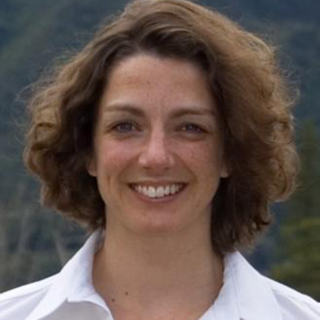
Shelly describes the four prototypical responses we have to good news, and where ACR places in this matrix (13:15).Understanding ACR as a dyadic process (12:33).Shelly shares the results of a recent study, which demonstrated how universal our instinctive response to positive events is (10:08).


The number one thing that people do when something positive happens to them (8:13).Shelly describes her approach to science, and how it led her to develop the Active and Constructive Responding (ACR) model (5:44).Her awards include teaching awards, the Best Article Award from the International Association of Relationship Researchers, the Early Career Award from the Close Relationships Group of the Society for Personality and Social Psychology, and the Presidential Early Career Award for Scientists and Engineers (PECASE) from President George W. She is particularly interested in the social regulation of emotions, positive processes in close relationships, and resilience more broadly. Gable’s research focuses on motivation, emotion regulation, close relationships and positive emotions. in Social and Personality Psychology at the University of Rochester and began her career as an Assistant Professor at UCLA where she earned tenure before joining the faculty at University of California, Santa Barbara in January 2007. Listen and remember to share this episode with others! Drawing from many years of research, Shelly explains why our responses to positive news make up such a key aspect of our relationships, why Active and Constructive Responding (ACR) is the most effective and authentic way to respond, and how leaders can leverage ACR to build better relationships at work and at home. joins me to discuss her theoretical and practical framework for nurturing our relationships and generating positive outcomes with our responses. On this episode of The TalentGrow Show, psychologist and professor at UC Santa Barbara Shelly Gable, Ph.D. From a relationship-building perspective, research is plentiful when it comes to supporting others in times of distress, but there is very little out there about responding constructively to someone else’s good news. My research also examines the positive aspects of close relationships and their role in physical and emotional health.When something positive happens, we instinctively tend to want to share our good news with others. I am particularly interested in how approach and avoidance social motives contribute to the course and quality of social interactions and close relationships. My current research focuses on appetitive and aversive motivation in social interaction and close relationships. In 2005 she received the Early Career Award from the Close Relationships Group of the Society for Personality and Social Psychology and in 2006 she received the Presidential Early Career Award for Scientists and Engineers (PECASE) from President George W. She serves on the editorial board of several journals and received a distinguished teaching award from the Psychology Department at UCLA. She is currently funded by a National Science Foundation CAREER grant for newer investigators. Her work has been funded by the National Institutes of Health, the National Science Foundation, and the Positive Psychology Network. Gable’s research focuses on motivation, close relationships, and positive emotions.

She began her career in 2000 as an Assistant Professor at UCLA where she earned tenure and co-founded the Interdisciplinary Relationship Science Program before joining the faculty at UCSB in January 2007. in Social Psychology at the University of Rochester in 2000. Shelly Gable received a BA in Psychology from Muhlenberg College and a Master of Arts in Psychology from the College of William & Mary.


 0 kommentar(er)
0 kommentar(er)
